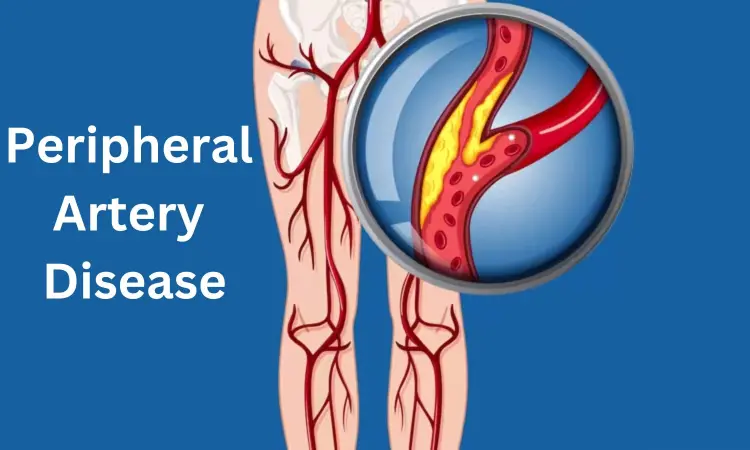- Home
- Medical news & Guidelines
- Anesthesiology
- Cardiology and CTVS
- Critical Care
- Dentistry
- Dermatology
- Diabetes and Endocrinology
- ENT
- Gastroenterology
- Medicine
- Nephrology
- Neurology
- Obstretics-Gynaecology
- Oncology
- Ophthalmology
- Orthopaedics
- Pediatrics-Neonatology
- Psychiatry
- Pulmonology
- Radiology
- Surgery
- Urology
- Laboratory Medicine
- Diet
- Nursing
- Paramedical
- Physiotherapy
- Health news
- Fact Check
- Bone Health Fact Check
- Brain Health Fact Check
- Cancer Related Fact Check
- Child Care Fact Check
- Dental and oral health fact check
- Diabetes and metabolic health fact check
- Diet and Nutrition Fact Check
- Eye and ENT Care Fact Check
- Fitness fact check
- Gut health fact check
- Heart health fact check
- Kidney health fact check
- Medical education fact check
- Men's health fact check
- Respiratory fact check
- Skin and hair care fact check
- Vaccine and Immunization fact check
- Women's health fact check
- AYUSH
- State News
- Andaman and Nicobar Islands
- Andhra Pradesh
- Arunachal Pradesh
- Assam
- Bihar
- Chandigarh
- Chattisgarh
- Dadra and Nagar Haveli
- Daman and Diu
- Delhi
- Goa
- Gujarat
- Haryana
- Himachal Pradesh
- Jammu & Kashmir
- Jharkhand
- Karnataka
- Kerala
- Ladakh
- Lakshadweep
- Madhya Pradesh
- Maharashtra
- Manipur
- Meghalaya
- Mizoram
- Nagaland
- Odisha
- Puducherry
- Punjab
- Rajasthan
- Sikkim
- Tamil Nadu
- Telangana
- Tripura
- Uttar Pradesh
- Uttrakhand
- West Bengal
- Medical Education
- Industry
Apelin promising therapy for diabetes patients with peripheral arterial disease

Canada: Apelin prevents diabetes-induced poor formation of collateral vessels and blood flow reperfusion in diabetic patients with peripheral arterial disease (PAD), a recent study has revealed. The findings were published in Frontiers in Cardiovascular Medicine on August 11, 2023.
In diabetes patients, PAD is a major risk factor for lower-extremity amputation. However, previous clinical studies previous studies investigating therapeutic angiogenesis using the VEGF (vascular endothelial growth factor) have shown disappointing results in diabetes patients, evoking the need for novel therapeutic agents.
Under hypoxic conditions, the apelinergic system (APJ receptor/apelin) is highly upregulated and acts as an activator of angiogenesis. In nondiabetic models of ischemia, apelin treatment improves revascularization, however, its role in in angiogenesis in diabetic conditions has not been investigated well.
Stéphanie Robillard, Research Center of the Centre Hospitalier Universitaire de Sherbrooke, Sherbrooke, QC, Canada, and colleagues explored the impact of Pyr-apelin-13 in endothelial cell function and a diabetic mouse model of hindlimb ischemia.
For this purpose, diabetic and nondiabetic mice underwent femoral arteries to induce limb ischemia. Osmotic pumps delivering Pyr-apelin-13 were subcutaneously implanted in diabetic mice for 28 days. The measurement of blood flow reperfusion for 4 weeks post-surgery. Exercise willingness was evaluated with voluntary wheels.
Bovine aortic endothelial cells (BAECs) were exposed to normal (NG) or high glucose (HG) levels and hypoxia. Following either VEGF or Pyr-apelin-13 stimulation, the researchers performed cell migration, proliferation and tube formation assays.
The study led to the following findings:
- Following limb ischemia, blood flow reperfusion, functional recovery of the limb and vascular density were improved in diabetic mice receiving Pyr-apelin-13 compared to untreated diabetic mice.
- In cultured BAECs, exposure to HG concentrations and hypoxia reduced VEGF proangiogenic actions, whereas apelin proangiogenic effects remained unaltered.
- Pyr-apelin-13 induced its proangiogenic actions through Akt/AMPK/eNOS and RhoA/ROCK signalling pathways under both NG or HG concentrations and hypoxia exposure.
In normoglycemic conditions, apelin proangiogenic actions are well documented. "Our results showed that, unlike VEGFR signalling pathways, the apelin/APJ pathways are not impacted by hyperglycemia, making the apelinergic system a potential target for angiogenic therapy," the researchers wrote.
Furthermore, they showed the Pyr-apelin-13's therapeutic effect in diabetic PAD, since its prolonged administration led to improved vascular density, blood flow reperfusion, and motor function in diabetic mice following hindlimb ischemia. However, it remains to be proven if apelin treatment can be an effective therapy for PAD and diabetes patients.
"The short half-life of apelin may represent a challenge for its use as a pharmacological treatment," the research team wrote. "Thus, to improve the long-term angiogenic response in diabetes, research must continue to develop more stable apelinergic agonists."
Reference:
Robillard, S., Trân, K., Lachance, M., Brazeau, T., Boisvert, E., Lizotte, F., Boudreault, P., Marsault, É., & Geraldes, P. (2023). Apelin prevents diabetes-induced poor collateral vessel formation and blood flow reperfusion in ischemic limb. Frontiers in Cardiovascular Medicine, 10, 1191891. https://doi.org/10.3389/fcvm.2023.1191891
Dr Kamal Kant Kohli-MBBS, DTCD- a chest specialist with more than 30 years of practice and a flair for writing clinical articles, Dr Kamal Kant Kohli joined Medical Dialogues as a Chief Editor of Medical News. Besides writing articles, as an editor, he proofreads and verifies all the medical content published on Medical Dialogues including those coming from journals, studies,medical conferences,guidelines etc. Email: drkohli@medicaldialogues.in. Contact no. 011-43720751


